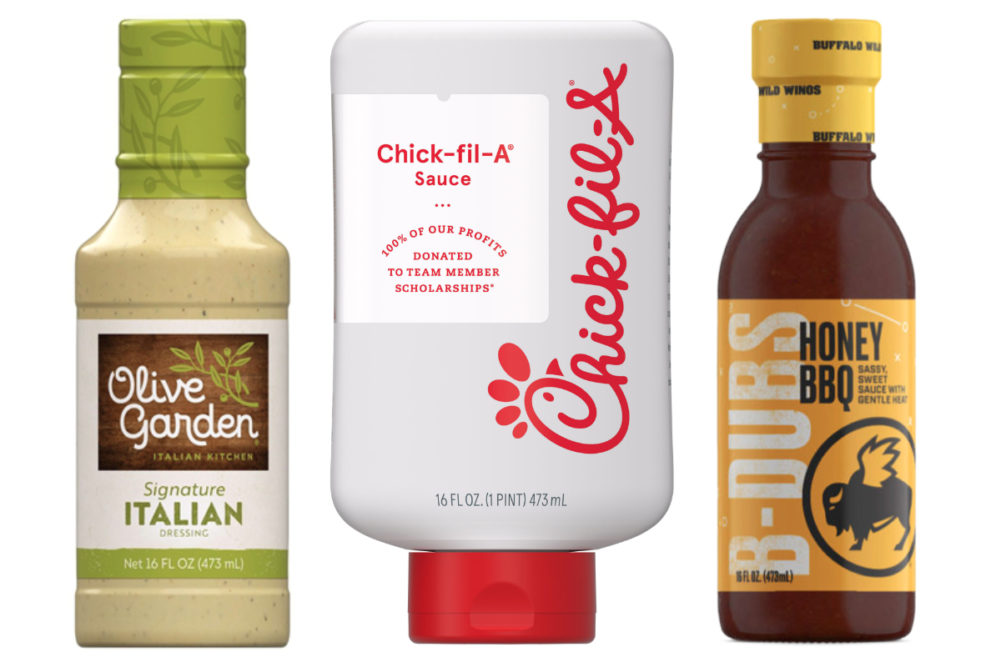WESTERVILLE, OHIO — The success of its licensing program continued to drive retail sales growth at Lancaster Colony Corp. in the second quarter, with Olive Garden dressings, Chick-fil-A sauces and Buffalo Wild Wing sauces noted contributors.
The strength in the company’s retail business helped offset a continued sluggish foodservice business bogged down by the coronavirus pandemic.
Overall, net income at Lancaster Colony Corp. in the second quarter ended Dec. 31, 2020, totaled $44.63 million, equal to $1.62 per share on the common stock, up 2.8% from $43.42 million, or $1.58 per share, in the same period a year ago. Net sales in the second quarter increased 5.6% to $377.02 million from $355.12 million a year ago.
Operating income in the Retail segment was higher in the second quarter, climbing 40% to $60.72 million from $43.46 million. Sales also were higher, rising nearly 20% to $222.57 million from $186.21 million in the same period a year ago.
David A. Ciesinski, president and chief executive officer of Lancaster, in a Feb. 4 conference call with analysts said sales of Olive Garden dressings increased 61% in the second quarter, while sales of branded croutons rose 22%, New York Bakery frozen garlic bread grew 17%, and Marzetti refrigerated salad dressings and Sister Schubert’s frozen dinner rolls both increased approximately 12%.
Mr. Ciesinski also provided an update on the continued success of the company’s licensing program.
“Chick-fil-A sauces and single-bottle Buffalo Wild Wing sauces, which we introduced last spring, continued to perform very well, adding over 4 percentage points to our Retail segment’s Q2 sales growth,” he said. “The regional rollout of Chick-fil-A sauces continued as planned during the quarter as we expanded distribution beyond the state of Florida with the addition of retailers in Georgia, Alabama, Mississippi and Louisiana. IRI data for the four new states indicate that initial velocity is very strong. In Florida, where we introduced Chick-fil-A sauces to the retail market with a pilot test last March, recent IRI data shows that trial-and-repeat purchases are extremely favorable, with cumulative household penetration of 11.1% and a repeat rate of 50.6%.”
In the company’s Foodservice business, operating income fell 32% in the second quarter to $18.34 million, down from $26.92 million a year ago. Sales eased 10% to $152.45 million from $168.91 million.
Thomas K. Pigott, chief financial officer, said Lancaster paid out approximately $15.1 million for property additions in the second quarter. He said the company has forecast total capital expenditures of between $105 million and $125 million in fiscal 2021, including investment in a recently approved expansion project at Lancaster’s Horse Cave, Ky., plant.
“This expansion will allow us to meet the fast-growing demand for our dressing and sauce products,” he said. “The total cost for the expansion is estimated at approximately $130 million with expenditures of approximately $30 million planned for this fiscal year.”





